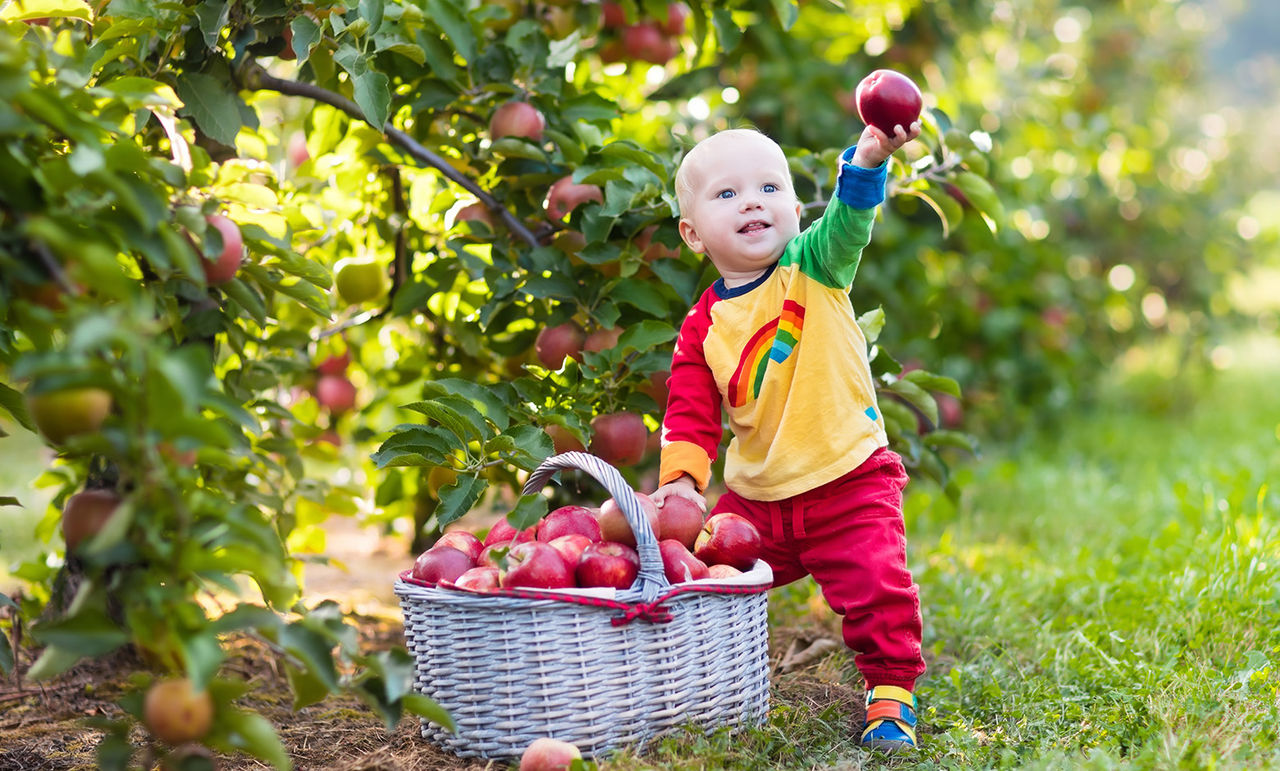- Prebiotics can help develop a diverse gut flora, which may support your baby’s immune system development
- Prebiotics stimulate the growth of probiotics
- Your baby can enjoy a range of foods that contain prebiotics across fruit, vegetables, legumes and grain sources
How prebiotics can help your baby’s immune system

Key points
The immune system is made up of a network of cells, tissues and organs around your body. Its fundamental role is to fight off infections and enable immune responses. An important part of the immune system is the gut flora or gut microbiota: millions of healthy bacteria that live in the digestive system and thrive off prebiotics and probiotics.To understand more about the relationship between prebiotics and your baby’s immune system, it helps to think of it like a chain reaction: prebiotics can help create a diverse gut flora (which may also be referred to as gut microbiota), which in turn may support your baby’s immune system development.
What are prebiotics?
Prebiotics possess 2 important characteristics:
- The fibre must pass through the gastrointestinal tract undigested
- They must stimulate the growth and/or activity of certain ‘good’ bacteria, called probiotics, in the large intestine
Most prebiotics are dietary fibre.
What is the difference between prebiotics and probiotics?
Probiotics are the good bacteria that live in the large intestine. Prebiotics stimulate the growth of probiotics. Think about prebiotics as the favourite and only food for probiotics.
What is the relationship of prebiotics to my baby’s gut flora?
Gut flora (or gut microbiota) is the community of millions of microorganisms (a kind of bacteria) that live in the digestive or gastrointestinal tract (what we simply call the ‘gut’). It is believed that prebiotics may contribute to healthy balance of your baby’s gut flora. The full health benefits of including prebiotics in the diet are still being discovered. An interesting fact about gut microbiota is that they are specific to each individual like fingerprints.
How does the gut flora affect my baby’s immune system?
Around 70–80% of the immune system is located within the gut. While it’s not yet fully understood why or how, it is recognised that a diverse gut flora – by this we mean having lots of different microorganisms – may play an essential role in how your baby’s immune system develops and responds to challenges like bacteria, viruses and allergens.
In addition to immune system support, it is also believed that a healthy gut microbiota plays an important role in:
- Producing beneficial vitamins, such as B12 and folate
- Helping your baby’s body to digest certain foods, such as dietary fibre
How important is breastmilk in providing prebiotics?
The third largest component of breastmilk (after carbohydrates and fats) is prebiotics. Breastmilk is the best possible source of prebiotics for your baby.
Breastmilk also contains many immune factors (such as immune cells, maternal antibodies, nucleotides, fatty acids and carbohydrates) that can’t be replicated.
If I am not breastfeeding, how can I include prebiotics in my baby’s diet?
Some infant formulas may include prebiotics. You can ask your healthcare professional for advice about whether your baby requires a formula containing prebiotics.
At around 6 months, and not before 4, you can start introducing solid foods that contain prebiotics. Some age-appropriate foods that contain prebiotics are:
Vegetables: sweetcorn, asparagus, snow peas, green peas, leek, onion
Fruits: bananas, watermelon, apples, nectarines, white peaches, dates
Grain sources: oats, bran muffins, rye crackers, wheat bread
Legumes: chickpeas, lentils, baked beans
Related pages

Get in touch with our Careline experts
When your little one is unhappy or unwell you want reliable support from a trusted source. Our Careline team of nutritionists, dietitians and midwives specialise in infant and child health, offering free nutrition, feeding and product information.
Every feeding journey is unique
Not every parent can produce breast milk. No matter what choice you make, we will support your unique feeding journey.
We at Nutricia believe in providing the best nutrition for babies, which is why we recognise breast milk is uniquely superior for babies as it provides many benefits. It is important that mums have a healthy diet to support breastfeeding. A decision not to breastfeed, or partial bottle feed, may reduce breast milk supply making it difficult to reverse. The cost and social implications of using feeding methods should be considered. Always seek professional advice about feeding your baby. Ensure formula is used as directed as improper use can affect baby’s health.
REMEMBER: The information on this page is general only. If you have any concerns about your baby’s poo or questions about constipation or any other health concerns, please speak to a healthcare professional, like a Pharmacist, GP or Maternal Child Health Nurse.



